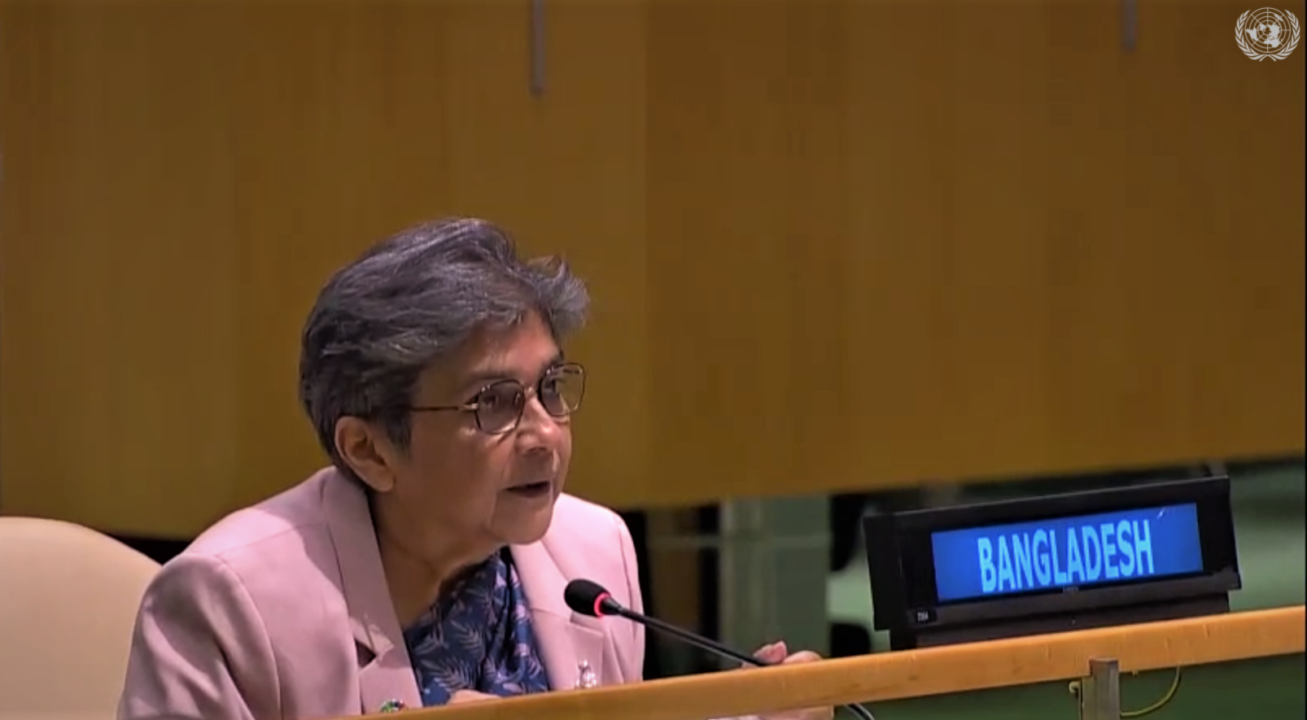Mr. President,
At the outset, I thank His Excellency Prime Minister Narendra Modi, for chairing this very important meeting. Allow me to take this opportunity to congratulate India for assuming the Presidency of the Security Council for this month on the month of its independence.
I also thank all the briefers for their comprehensive briefing.
Mr. President,
Maritime security is an important and integral part of international peace and security. Throughout history the oceans were always of vital economic and political importance. At present, around 90 percent of the global trade takes place through marine route. Thus, maritime security is linked to global economic development. The rise of trade through marine routes also brings new challenges that require global political attention and action. These challenges include, among others, inter-state disputes, maritime terrorism, piracy, trafficking of narcotics, people and illicit goods, arms proliferation, illegal fishing, marine litter and plastic pollution, maritime accidents and disasters, and impact of climate change on marine ecology and biodiversity. Such diverse range of issues and complexities, warrant international coordination that the maritime security agenda entails.
Mr. President,
Bangladesh attaches high importance to maritime security. Following the peaceful settlement of maritime boundaries with India and Myanmar, we prioritized economic activities, including extracting marine resources from our maritime zone in the Bay of Bengal. A significant number of Bangladeshi people are working as seafarer around the globe. Thus, any insecurity in the global maritime route will negatively impact on the social, economic and environmental security of the country.
Mr. President,
Many states are engaged in developing a framework for maritime security. Yet, in this globalized world and with the emergence of new technologies, maritime crimes are on the rise. The transnational nature of these crimes makes it impossible for one state to fight them alone. So, we need a collective approach and renewed commitment to curb maritime crimes. Let me make some specific points in this regard:
First, UNCLOS provides a comprehensive framework to address all possible threats to maritime security. This august Council has adopted a significant number of resolutions in this regard. We commend the work of the UNODC for supporting member states in curbing maritime crime through the implementation of the Convention against Transnational Organized Crime and Convention against Illicit traffic in Narcotic Drugs and Psychotropic Substance. Member States need to effectively and in right earnest, implement all the provisions of the Convention and Security Council resolutions for promoting maritime security.
Second, climate change has adverse impact on global maritime security. Effective implementation of the relevant climate agreements including the Paris Climate Agreement will play an important role in promoting maritime security. We urge member states to make renewed commitments to further prevent the adverse impacts of climate change during the upcoming COP26 and thereby contribute to ensuring maritime security.
Third, the conservation and sustainable use of marine biodiversity beyond national jurisdiction are critical to promote maritime security. We would like to see the early conclusion of the international legally binding instrument under the United Nations Convention on the Law of the Sea on the conservation and sustainable use of marine biological diversity of areas beyond national jurisdiction (BBNJ Agreement). Bangladesh will remain actively and constructively engaged in the negotiations and norms setting process of the agreement.
Fourth, the root causes of maritime crimes should be identified and member states need to be properly equipped with necessary technical, technological and financial supports to curb the maritime crime. Intelligence and information sharing among member states will play a critical role in enhancing national capacities in this regard.
Fifth, illegal, unregulated and unreported (IUU) fishing and trafficking of narcotics are major problems in many maritime zones. Bangladesh enacted its own “The Marine Fisheries Act” in 2020 accommodating necessary clauses for prevention and control of IUU. Bangladesh is also in the process of finalizing its “Maritime Zones Act”. Nevertheless, without sufficient capacity to control IUU fishing and trafficking of narcotics, it would be impossible for countries such as ours to combat those challenges. International cooperation is imperative in this regard.
Finally, maritime crime and terrorism are required to be controlled to safeguard the economic interests of our countries. However, while we endeavour to do so, we must not forget the humanitarian needs of the people in distress in the marine routes.
Mr. President,
Bangladesh as a littoral country of the Bay of Bengal/Indian Ocean engages itself to secure its maritime security interests in a cross-sectoral, comprehensive, coherent and cost-effective manner, in conformity with existing national and international laws, in particular the UNCLOS and other relevant conventions and instruments. A shared unity of purpose and effort by all involved is necessary to maintain safety and security of our maritime routes. Let us work together to reap the advantages and opportunities that the oceans offer us.
I thank you, Mr. President, Hon’ble Prime Minister.

